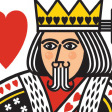Pathological Gambling: Phases and Symptoms
Historically, the word gambling has been coined from the sinister actions of a bettor in order to win in a game of chance. This has evolved to the present day. People have already resorted to different gambling laws to avoid any unfair chances of winning. The definition has now become a simple act of betting or wagering money or any other kind of monetary asset on games of chance(s) or any activity in which the outcome is random or uncertain. Some gambling activities require skills of computing possibilities (such as playing card games, poker, blackjack, and the like) while some merely depend on pure luck (lotto, bingo, slot machines, etc.)
Once a person becomes attached to gambling activities, or has considered going to gambling places a habit, or simply find it irresistible to bet in high stakes, he therefore becomes a gambler.
There is nothing really wrong about being a gambler as long as one uses it only for recreational purposes or to socialize with other people. Gamblers of this kind are considered as Level 1 gamblers. There are no known harmful effects in this phase and the person can still control this habit.
However, if the gambler starts to experience a lot of satisfaction such that his time becomes consumed in gambling more than any usual activity and starts to disregard important things in his life (his job, family, coworkers, important relationships, etc.), he enters into Level 2 phase. This can already be considered as problematic or compulsive gambling. It may be due to (1) his social satisfaction of being acknowledged by the gambling community, (2) the simple wanting of recovering the total amount of his losses or (3) other factors derived in engaging in such activity which the person does not find in his other activities. Although the habit is still controllable at Level 2 phase, it will be very difficult for the person to quit gambling easily. Counseling can considerably help the person in this level so as to make him realize the negative effects of gambling and consequently forego his habit for this matter.
When the person fails to get out from his gambling addiction and loses control over his gambling activities, his habit already becomes a psycho-pathological disorder. This Level 3 phase is characterized by irrational thinking of the gambler such that he becomes preoccupied with gambling more than anything else despite his consciousness of its adverse effects. For gambling sake, he could totally disregard his family and job or even mortgage his house for a wager. If his finances got drained due to his losses in gambling, he might even loan from others or even use other peoples belongings just to win back what he has lost. These are some glaring symptoms of a probable pathological gambler.
Serious counseling and medical attention are already needed if the person is also experiencing any of the following symptoms: depression, family and social problems, high risk of losing a significant relationship, getting laid-off from work, restlessness, financial crisis, withdrawal syndrome, preoccupation, mental episodes, irritability, serious lying, chasing wagers, illegal acts (forgery, embezzlement, fraud, theft, estafa, etc.), getting bailed out for such illegal acts and biological signs such as high norepinephrine level. //juss
Most Recent Articles
-

Have a common sense approach to gambling. Expect to lose some of your bankroll, do the math, play in the right casinos and play for fun.
More »
A high-roller gambler is a gambler who gambles with huge amounts of money.They do this because they think that the more they gamble the better the odds are for winning.
More »
Subscribe
Featured Video
Categories
- Greece Casinos and Gambling Facilities
- Real money casinos
- Online casinos revenues
- Why play online casino?
- Spain Favors Regulation of Online Gambling
- Common Sense Gambling Advice
- A Look at the Different Variables That Affect Gamblers' Odds
- Gambling Reasons Away















